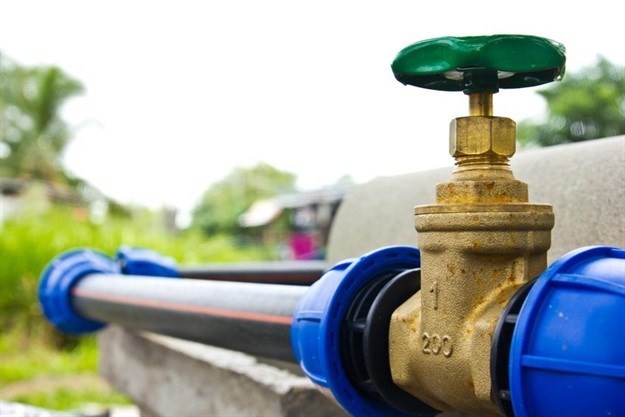
Top stories






More news

















Logistics & Transport
Uganda plans new rail link to Tanzania for mineral export boost









The minister gave an update on agreements reached with certain municipalities to settle their outstanding debt (of more than 60 days) to the Department of Water and Sanitation and water boards for the delivery of bulk water services.
At the briefing in Tshwane, Mokonyane said R55.5m has been paid by municipalities to the Water Trading Entity of the Department of Water and Sanitation.
The briefing follows an announcement the minister made on 27 November that the department was embarking on a process aimed at recovering a total outstanding debt of R10.7bn owed to the department and water boards by various municipalities.
The notices issued advised the 30 affected municipalities of the department’s intention to invoke Section 59 (3) (b) of the National Water Act, which allows the department to restrict or suspend the flow of water to defaulting municipalities.
“Commitments received since our initial pronouncements and over and above monies already received amount to R300m,” Mokonyane said.
The department anticipates that this figure will increase over the next few days, as more municipalities have made commitments to pay the agreed amounts towards the old debt and to settle their current account debt, which is invoices not older than 30 days.
“Of the 30 municipalities cited, 25 have made contact with the department and water boards, and have made commitments to make payment against their debt thus far. Eleven municipalities have made payment towards their debts by the deadline of 8 December 2017.
“There are municipalities that have raised disputes with some portions of the debt owed and to this end, we have agreed on a process to be followed in resolving debt under dispute and separating it from the main debt to allow for a commencement of payment on the undisputed portions of the debt,” Mokonyane said.
The minister announced that the department will commence with the rationed restriction of bulk water supply to the municipalities that have failed to engage with the department and/or make payment of their outstanding debts by the deadline of 8 December.
She, however, emphasised that the department will not cut water supply but may throttle the pressure at which it supplies bulk water to ensure that citizens are provided with the minimal allocation of water, as dictated by the Constitution.
The South African standard relating to a 'basic' water supply is defined as 25 litres of water per person, per day, and this amounts to six kilolitres of water per household, per month for a household of eight people.
“This restricted volume will also be augmented by 40% to cater for supply to informal settlements as well as water losses within the reticulation system. This is what the Constitution requires us to provide, as a basic level of access to water for all households in South Africa.
“The water restrictions proposed would be designed to ensure that households and citizens have access to their constitutionally guaranteed basic level of supply, while we force municipalities to meet their financial obligations,” the minister explained.
However, she warned that being indigent does not mean using water irresponsibly.
An analysis by the department of the top 30 defaulting municipalities has highlighted several systematic challenges that require the interventions of the Cooperative Governance and Traditional Affairs (Cogta) Ministry and the provinces in support of municipalities.
“This analysis indicates that the majority of these municipalities fall between high to extreme vulnerability in areas such as revenue collection, wastewater management and compliance, financial and infrastructure asset management as well as operations and maintenance.
“Twenty-six percent of the municipalities show non-revenue water figures of above 50%. This means that these municipalities are losing more than half of the water supplied through their systems. A further 26% have been unable to track and provide data on water losses.
“This emphasises the important observations we have made of a need to drastically improve the capacity of municipalities to plan, budget, operate and maintain water services infrastructure, including adequate systems of revenue collection and an updated indigent register,” the minister said.
She further assured that the department will not punish municipalities that are cooperating and that the end user will not be “punished”.
SAnews.gov.za is a South African government news service, published by the Government Communication and Information System (GCIS). SAnews.gov.za (formerly BuaNews) was established to provide quick and easy access to articles and feature stories aimed at keeping the public informed about the implementation of government mandates.
Go to: http://www.sanews.gov.za